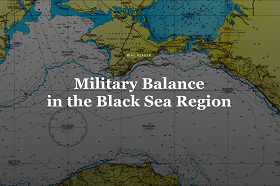Recep Erdogan’s letter to Vladimir Putin opens up new opportunities in relations between the two countries. Although the apology itself can be interpreted differently (it is addressed to the families of the deceased pilots and in Turkish, sounds somewhat like “Alright, guys, we made a mistake, no hard feelings, OK?”), there is no doubt that the President of Turkey intended his letter to be taken as an apology. Judging by the reaction from the Kremlin, and given the fact that the Press Secretary for the President of Russia, Dmitry Peskov, is fluent in Turkish, it would seem that the text of the apology has been understood correctly.
Recep Erdogan’s letter to Vladimir Putin opens up new opportunities in relations between the two countries. Although the apology itself can be interpreted differently (it is addressed to the families of the deceased pilots and in Turkish, sounds somewhat like “Alright, guys, we made a mistake, no hard feelings, OK?”), there is no doubt that the President of Turkey intended his letter to be taken as an apology. Judging by the reaction from the Kremlin, and given the fact that the Press Secretary for the President of Russia, Dmitry Peskov, is fluent in Turkish, it would seem that the text of the apology has been understood correctly. The use of the word izvinite (“please forgive us” in Russian) on the Turkish Radio and Television Corporation’s (TRT) Russian-language website confirms this. At the same time, this ambiguity allows the Erdogan-controlled media (and this is the majority of the media in Turkey) to interpret the president’s move “correctly.”
In shooting the plane down, Erdogan had two goals: to show to the West what “side” he was on; and to receive popular support in view of the upcoming referendum on the presidential system. The reaction of the West was half-hearted, although it did seem to support Turkey over Russia and attempted to close its collective eyes to Erdogan’s growing authoritarianism. The migrant crisis also played a role, since the Turkish leader used it to de facto blackmail Europe. However, Germany was the first to decide not to toe Turkey’s line, then Britain dealt a low blow to the first primarily Muslim country wishing to join the European Union. In the light of Brexit, Turkey will have great difficulties joining the EU. This is why Erdogan needs to look for other areas of foreign political cooperation. Just a day before the letter to Putin was published, Turkey and Israel officially announced a diplomatic rapprochement; economic relations between the two countries had always been excellent. Political relations, not so much. Shooting down the Russian plane, Turkey was hoping for the same, but Russia proved to be more principled.
Electoral support initially soared by 20–30 points, before starting to drop again. At the same time, the Russian sanctions delivered a painful blow to Turkey. The tourist flow decreased. More than 1000 hotels have been put up for sale, while others are welcoming fewer and fewer holidaymakers. The tourist season has become shorter. The situation has affected thousands of people who are directly or indirectly involved with the tourist industry. Russian–Turkish families (almost a million people) are suffering from the deteriorating relations. It would seem that the risks of growing discontent due to the severed ties between the two countries outweighed the support that Erdogan “war” with Russia was expected to gain. Thus, the second goal was not achieved either, and the Turkish leader decided to reset the situation.
In addition to an apology, Vladimir Putin had two more demands: pay the damages and punish the guilty. These terms are far easier to satisfy. The letter hints at the first directly. As regards punishment, this too is not beyond the realm of possible. Criminal proceedings against one of the suspects have already been initiated. Quite possibly, the actual perpetrator will not be arrested; it will be a stooge who will be amnestied in due time. Or it will be declared a conspiracy of the mythical “parallel structure” on which Erdogan blames many of his woes.
Now the ball is in Russia’s court. The key role will most likely be played by the Foreign Ministers’ meeting in Sochi scheduled for July 1, 2016. The apologies will probably be accepted, and the process of returning to normal neighbourly relations will commence. It will not be the kind of friendship it once was, but relations will gradually improve. In particular, tensions will decrease, and this includes the tensions that have been exacerbated in the media. Academic, educational and cultural connections will be resumed. Economic improvement is also possible. Some minor sanctions can be lifted now, while major sanctions may be lifted later. Tourist relations will be gradually restored, too, although it is difficult to predict anything here. Undoubtedly, hotels and tour operators are ready to start sending and receiving Russian tourists as soon as next week. However, the question is: How much do the Russian authorities want this? They are unlikely to force the issue. It is quite possible that if the situation develops favourably, permission to resume tours to Turkey will be given during the second half of this season, in August–October. Visas for Turkish citizens will be waived, apparently, even later than that. But crossing the Russian border will definitely become easier.
As far as politics is concerned, as long as Turkey is a member of NATO, it can have no meaningful military and political partnership with Russia. This is why Russia will not become, as Erdogan wrote in his letter, a strategic ally of its Black Sea neighbour, and it will be far more wary of Turkey than it used to be.





